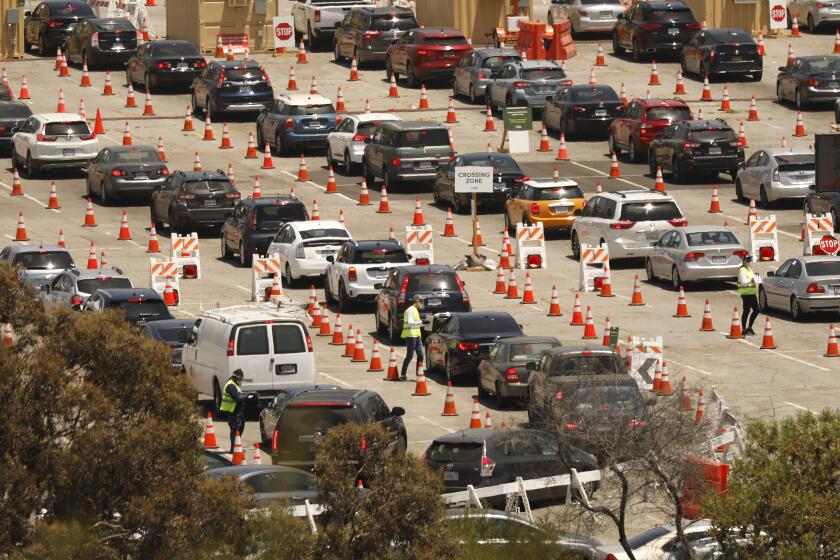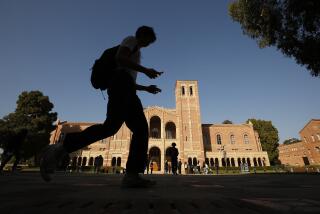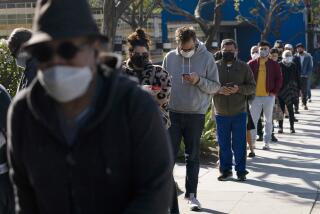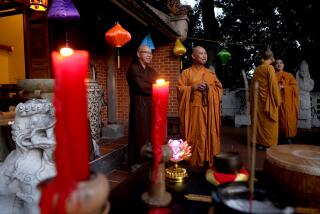Coronavirus outbreak tied to fraternity parties imperils fall semester at UC Berkeley
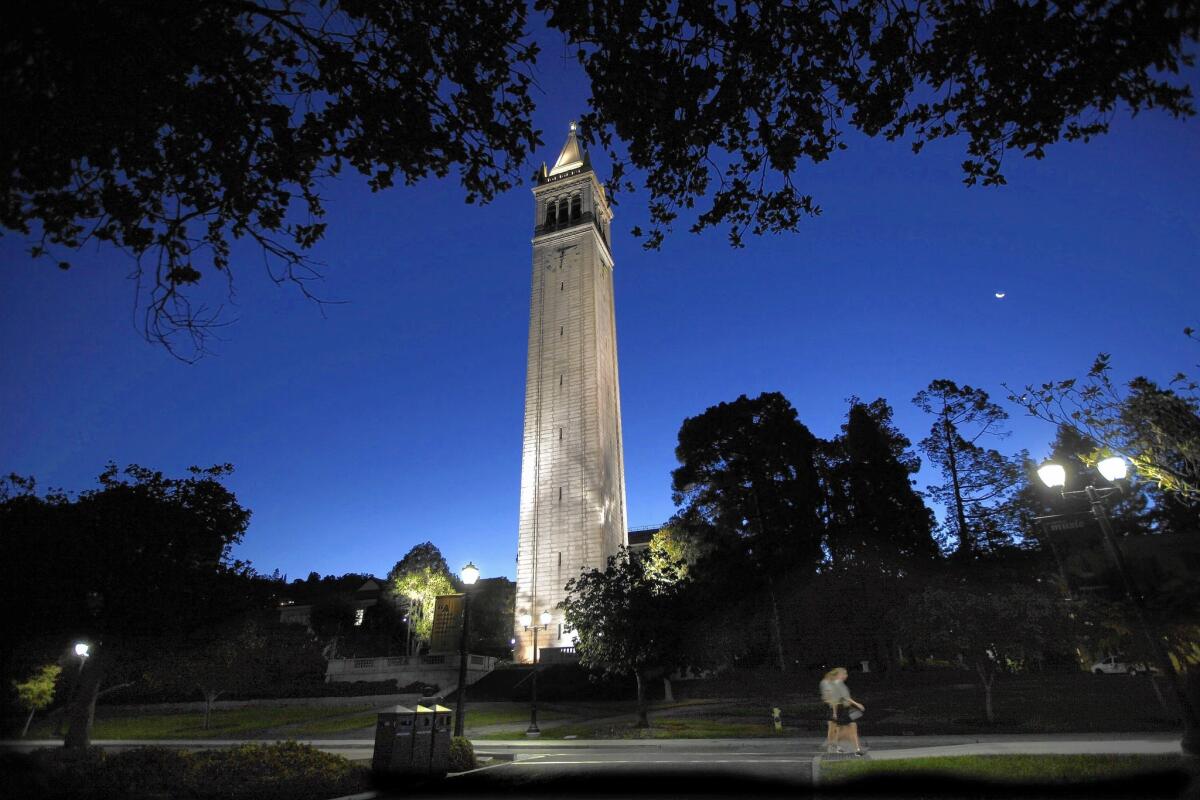
- Share via
SAN FRANCISCO — An outbreak of coronavirus infections tied to parties connected to fraternities at UC Berkeley is imperiling the prospect of in-person fall semester classes, university officials warned.
In just one week, there have been 47 COVID-19 cases confirmed by the University Health Services system, the school said in a letter to the campus community.
Most of the 47 new cases “stem from a series of recent parties connected to the CalGreek system, which included students both within the CalGreek community and others, and led to some secondary spread within households and within other smaller gatherings,” said the letter written by Anna Harte, medical director of the campus’ health clinic, and Guy Nicolette, an assistant vice chancellor.
“Generally, these infections are directly related to social events where students have not followed basic safety measures such as physical distancing, wearing face coverings, limiting event size, and gathering outside,” the letter said.
California records highest single-day coronavirus death toll
The outbreak underscores how California’s new coronavirus surge is being fueled by much younger people who are getting back to summer social events and contracting COVID-19.
Gov. Gavin Newsom said this week that younger people who think “they are invincible” are falling ill nevertheless. Adults between 18 and 49 have made up 6.4% of California’s coronavirus-related deaths.
Los Angeles Mayor Eric Garcetti underscored that point Wednesday, saying “more than 50% of the people who are testing positive in Los Angeles County are between 18 and 40 years of age.” Adults 18 to 40 make up 35% of L.A. County’s population.
While “most young people are doing the right thing,” he said, “it’s clear that a lot of them are not.”
“This isn’t complicated: Do not get together with someone who’s not in your household,” he said. “These weeks are absolutely critical: Critical to whether schools open, whether our economy and our economic recovery path continues. These weeks are critical for saving lives.”
More than 100 residents of Los Angeles County between the ages of 18 and 40 have died from the coronavirus.
“While the rate of death is significantly less for younger people, unfortunately, younger people die pretty much almost every day,” Barbara Ferrer, the director of public health for L.A. County, said Thursday. “And some of the people who are dying don’t have any underlying health conditions, either.”
About 7% of the people who have died in L.A. County with a coronavirus infection had no underlying health conditions.
Younger adults can also be a significant spread of the coronavirus to more vulnerable people. A study published by the U.S. Centers for Disease Control and Prevention found that in Japan, it was most often adults in their 20s or 30s — infected but not showing signs of illness — who were responsible for spreading the coronavirus among 61 clusters of illness.
“As a young person, you inadvertently unknowingly could be infecting people, even in your age cohort, who then go on and infect somebody else who’s at risk and has a terrible outcome and actually may even die,” Ferrer said.
Even those who do survive COVID-19 can suffer from months of complications, Ferrer added.
A growing number of campuses are rethinking fall on-campus plans as the coronavirus has surged again.
Last week, USC announced it will no longer bring all undergraduates back to campus for the fall semester and will move to mainly online classes, reversing an earlier decision to welcome students back for a hybrid model.
Only 10% to 20% of courses during the fall semester will be conducted in person and on campus. These courses include certain labs, studios and performance classes, and research studies that require hands-on work.
California State University, the nation’s largest four-year college system, plans to cancel most in-person classes in the fall and instead offer instruction primarily online, its chancellor said in May.
The vast majority of classes across the 23-campus Cal State system will be taught online, with some limited exceptions that allow for in-person activity.
UC Berkeley officials said that with the rate of increase in disease, “it’s becoming harder to imagine bringing our campus community back in the way we are envisioning.”
Before the 47 new cases were reported, there had been just 23 confirmed COVID-19 cases on campus since the start of the pandemic.
The officials said UC Berkeley can move forward with a fall semester on campus only if COVID-19 case numbers remain low.
The fall term would be dramatically different, with students living on campus possibly being restricted to small “bubbles” of 10 to 12 — allowing them to have social interaction while limiting the ability of the coronavirus to rapidly infect many more students.
Everyone would need to wear a mask unless completely alone in their room or office, and social distancing would need to be in place “in every conceivable area across campus,” the letter said.
Times staff writers Nina Agrawal, Tomas Mier and Luke Money contributed to this report.
More to Read
Sign up for Essential California
The most important California stories and recommendations in your inbox every morning.
You may occasionally receive promotional content from the Los Angeles Times.
